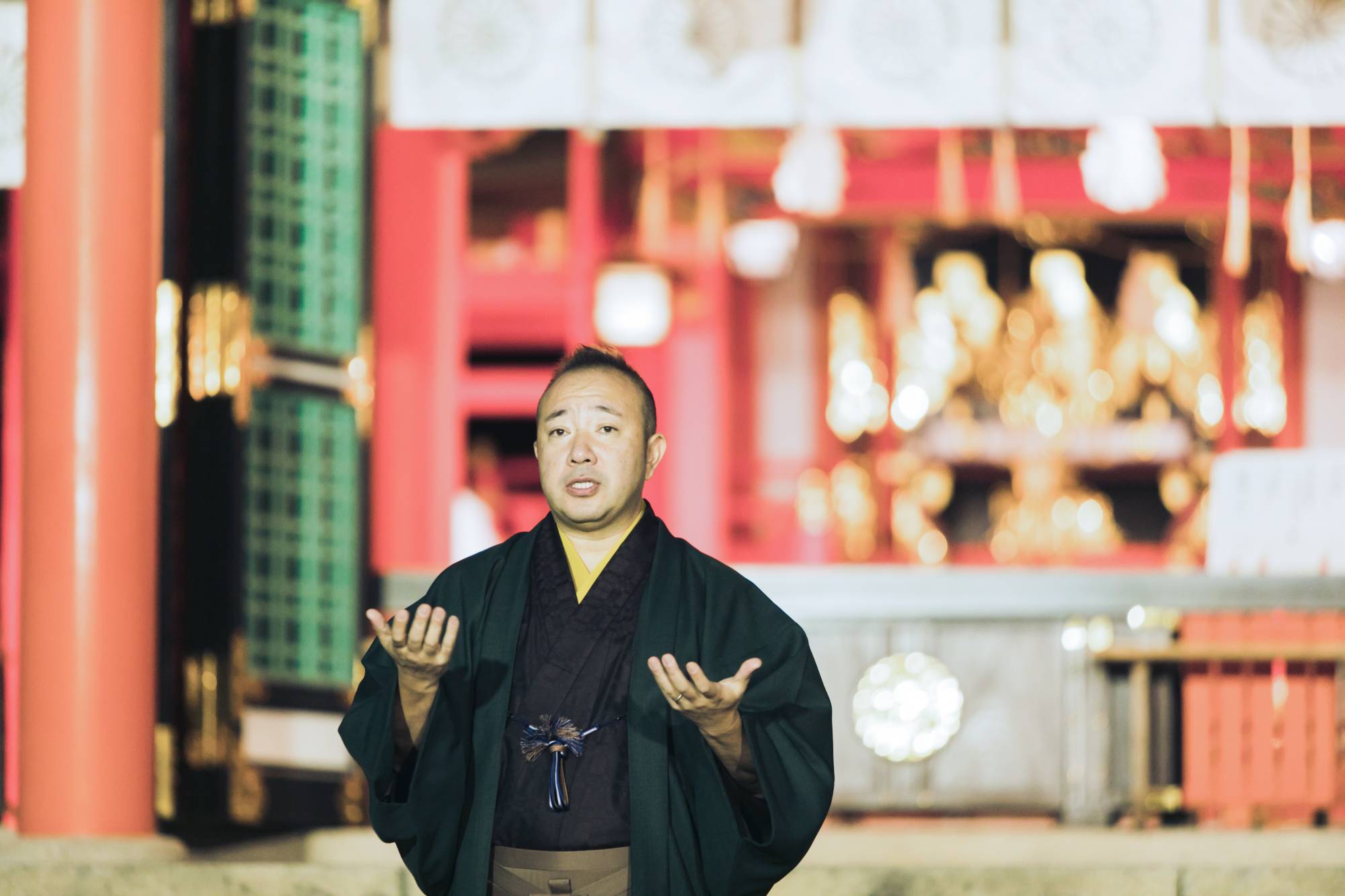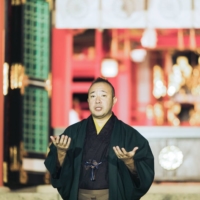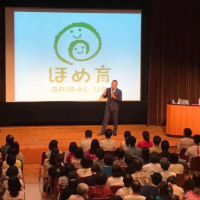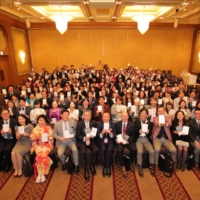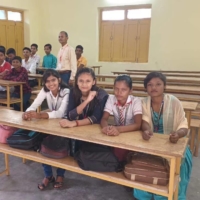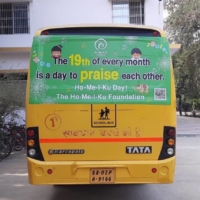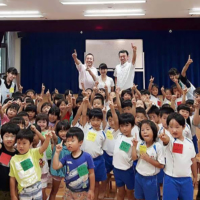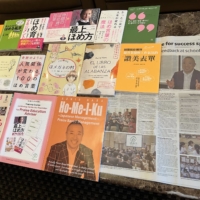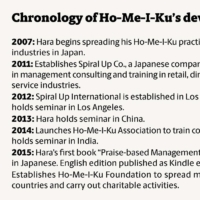Japanese entrepreneur, educator and consultant Kunio Hara garnered the greatest number of views on TEDx Talks in 2022, out of a total of 15,900 speakers worldwide. He is the first Japanese to become the most popular speaker of the year on the Technology, Entertainment and Design platform.
His talks were about his strong belief that “people and countries exist to be praised” and his lifelong dedication to spreading this idea throughout the world by using an education and training method he calls Ho-Me-I-Ku, a play on the Japanese words for praise (homeru) and raise (iku, or sodateru). The basics of the method are praising oneself to improve self-esteem and praising others and finding their invaluable strengths. What and how to do this are tailored to each educational institution and youth support organization, as well as to companies aiming to create a better working environment for the well-being of their employees.
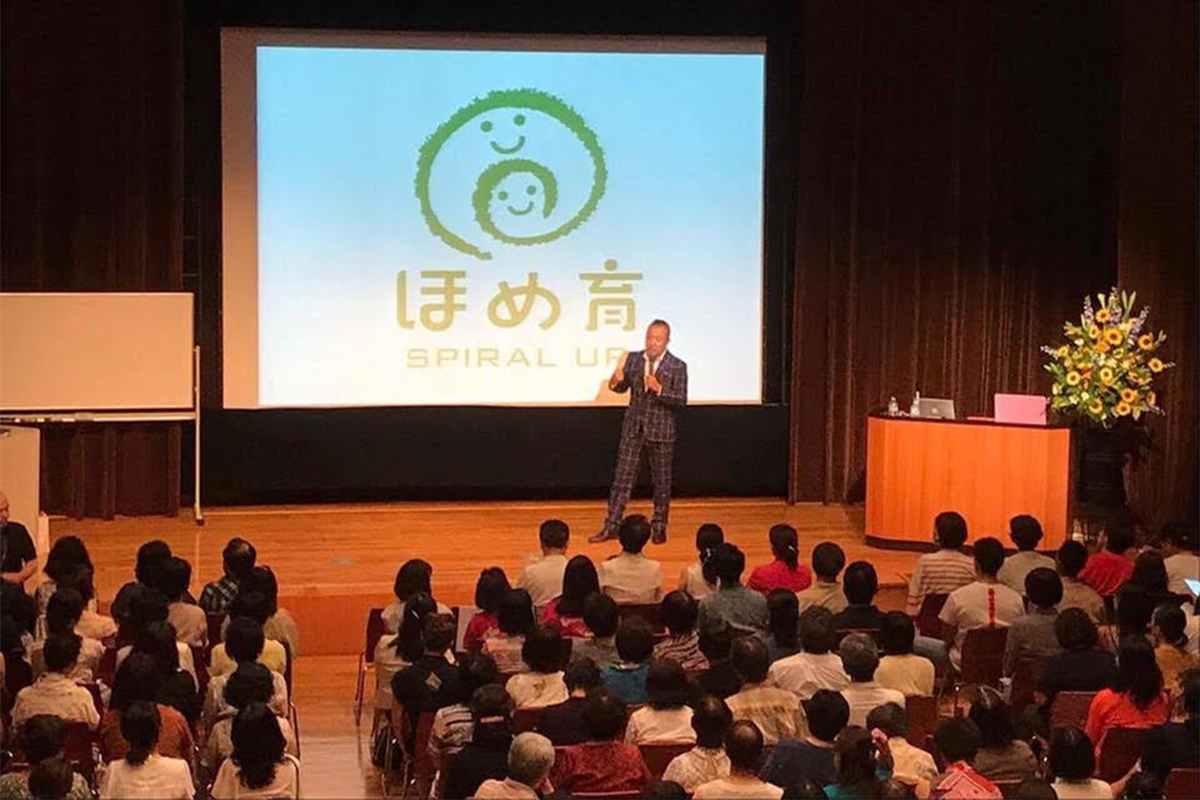
The reason why Hara chose to focus on the power and effect of praising comes from his experience as a child and through his career. He was born into a Christian family in Hyogo Prefecture. To him, the church he attended was a place where people said words of praise and goodness to each other. His parents always showed trust and confidence in him, and praised and encouraged him rather than criticizing or pressuring him.
From hazing to praising
In the first and second workplaces he joined after graduating university, new workers like himself were often berated. He did the same to his subordinates when he reached a managerial position, believing that being harsh was the right way to train his staff. He soon came to understand that scolding doesn’t do any good as he saw his workers stream out the door one after another. Startled, he remembered how he was raised at home and in his community and began to praise his staff instead. But he was not just giving empty compliments. Rather, he tried to be specific about what to praise, focusing on the aspects that would lead to the desired results in their work. This had a positive impact on performance, including sales and staff retention.
Hara systematized his praising method in a way that helps evaluate a person’s performance and clarify what exactly is worth praising. “It doesn’t matter who you are dealing with. It can be applied to people of all ages and nationalities. You can start praising someone from today and make him happy, and a chain of good effects will follow,” he said in a recent interview with The Japan Times.
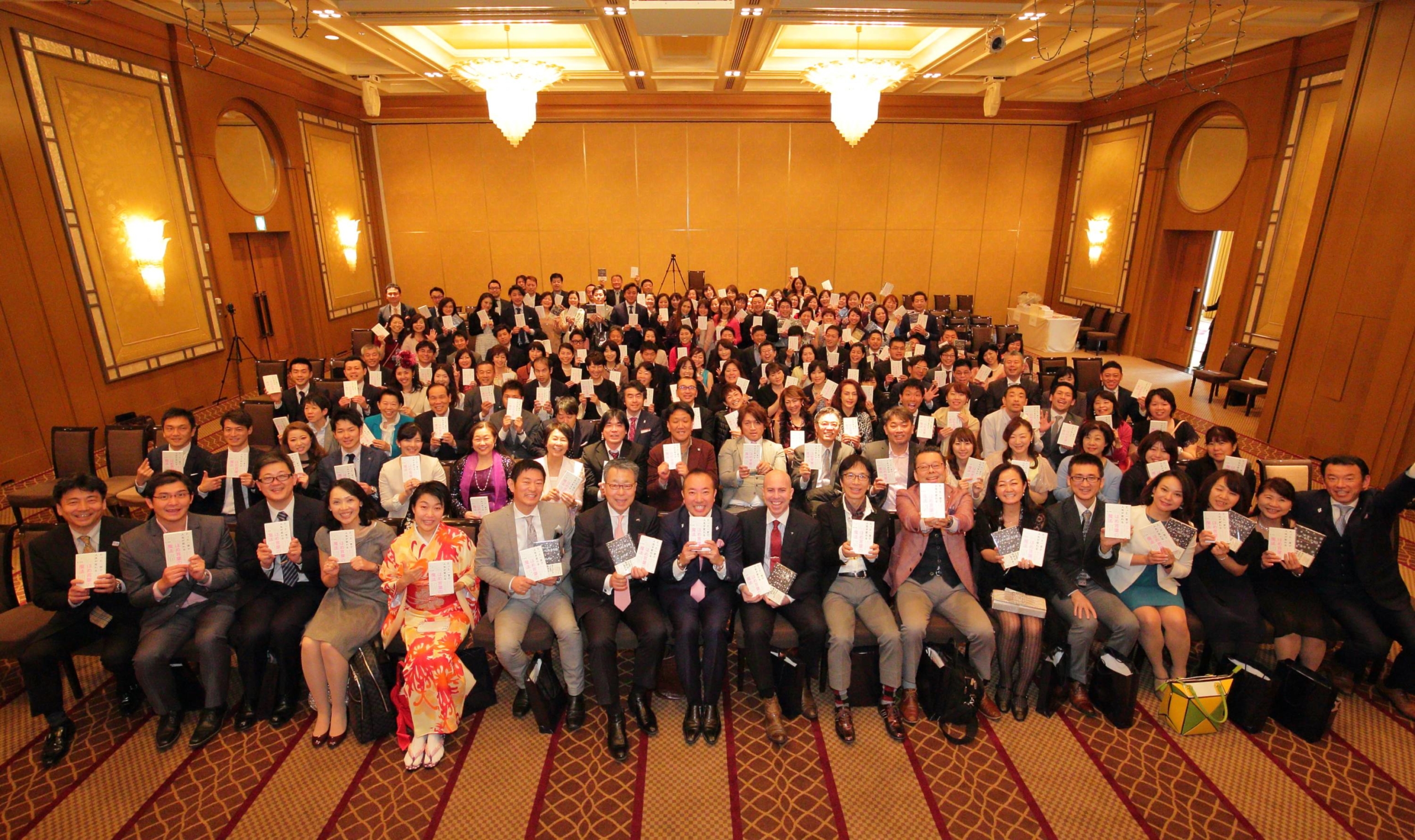
Over 500 companies have implemented the Ho-Me-I-Ku method since he started to promote it in consultations with his corporate clients in 2007. He established the Ho-Me-I-Ku Foundation in 2015 to spread the method, support social and educational activities and engage in charitable activities worldwide.
As part of his efforts to reach out to the world, he started participating in TEDx events in 2020.
The COVID effect
Hara said some people may wonder why he attracted so many viewers as a speaker from a country where people are not used to paying sincere compliments and attach greater importance to values such as discipline and courtesy. “I think the situation with the COVID-19 pandemic partly contributed to the huge attention I gained. Before the pandemic, people’s interests centered around topics related to psychology and information on how to stay motivated, grow or become successful,” he said.
When he started traveling again after borders reopened, he saw a wounded world.
“Everyone was affected. The memory of being severely hurt or facing possible death lingers. You don’t need money or the internet to regain your strength. All you need is to praise and be praised. That will bring a smile to your face,” he said.
Hara emphasized that the pandemic made people realize the conventional economy has no chance against an impenetrable or unexpected enemy. He thought the world needed something new, something that anyone can try and something that cannot go wrong. Though some may lament that things will never return to what they were before the pandemic, Hara feels his idea is one that hasn’t changed and will remain the same — that only good things can happen when one person praises another.
It was Hara’s online TEDx talk for India in January 2022 that became the most popular of the year. “India was one of the countries where children suffered significant impacts from COVID-19, especially in areas where the economy depends almost entirely on tourism,” he said.
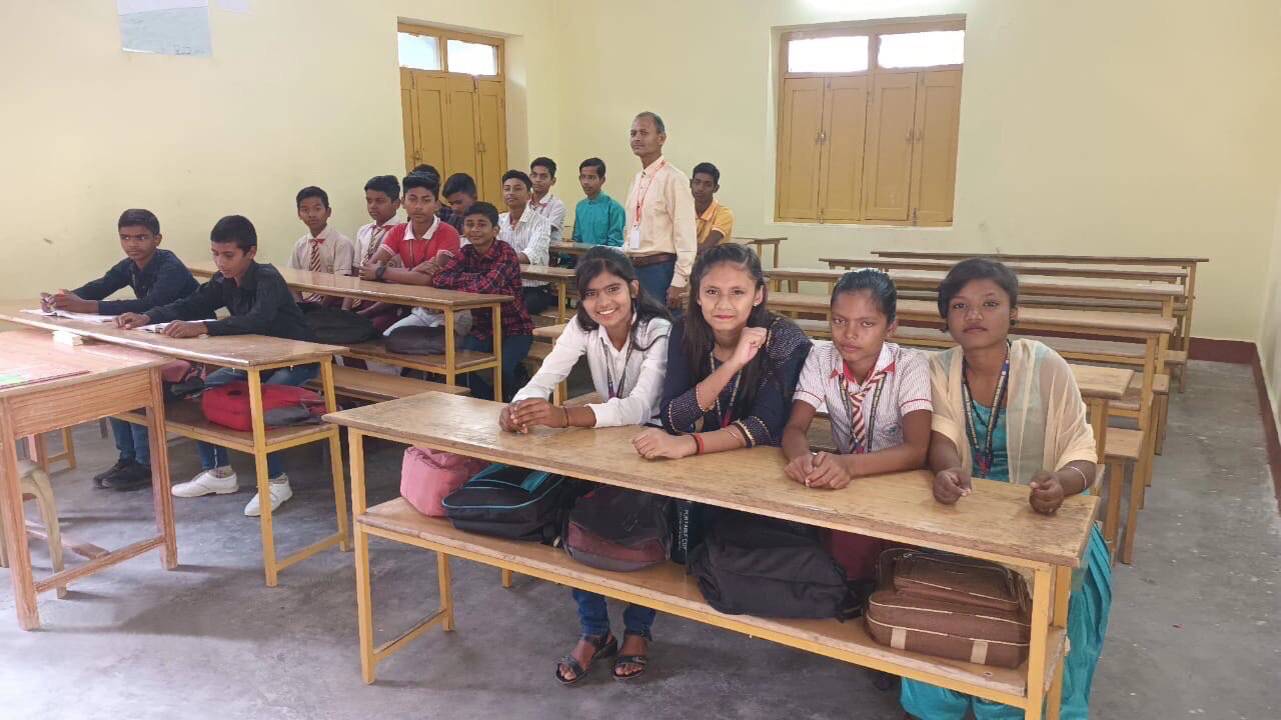
Global reach
Hara had built a relationship with India through his publisher.
Although his March 2020 trip to India to implement Ho-Me-I-Ku lessons at an elementary school was canceled by the pandemic, he decided to donate Wi-Fi terminals and conduct an online lesson about his system instead. Since then, he has continued to make periodic donations to the school, including a bus for those who live far away. The back of the bus sports a large sticker that says, “The 19th of every month is a day to praise each other.” This is what Hara wants to promote worldwide.
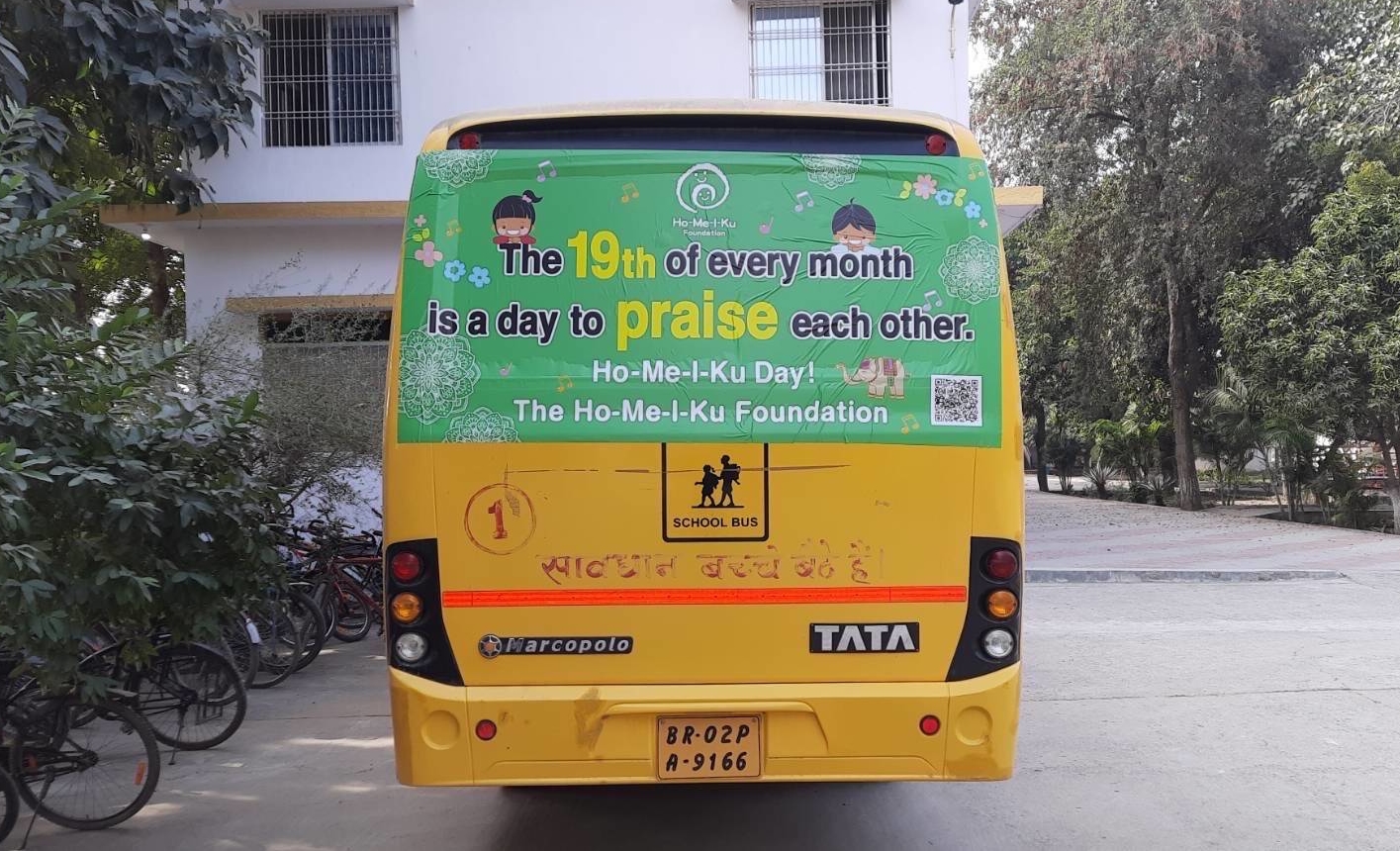
In Japan, Oct. 19 is designated as Ho-Me-I-Ku Day by the Japan Anniversary Association. While praise can be issued more frequently, Hara suggests the whole world make the 19th of every month a day of praise.
Enriching for all ages
Before Hara started doing TEDx events in 2020, he was collaborating mainly with Japanese educational institutions and companies. He visits schools of all levels, including nursery schools, to hold lectures and workshops.
“The Ho-Me-I-Ku method is used in more than 100 nurseries and kindergartens across the country,” Hara said. The good thing about the method is that it can be arranged for different purposes and groups of people, which means teachers can use it for themselves as well.
“An owner of six nurseries in Osaka told me that none of their new hires had left in the past three years since they started practicing the Ho-Me-I-Ku method,” he said, pointing out that happy, cheerful teachers undoubtedly have a positive impact on children. The method has been adopted by a number of cram schools and sports clubs, too. “In any case, it is important to educate adults, too, which is why some of the books I have written are meant for teachers,” he said.
Pietro Co., a manufacturer of dressings and sauces, is one company that has been practicing the method for several years. “They had two factories in Fukuoka Prefecture when I visited them the first time. Even though the workers at the factories often needed to work together and share tasks, they did not get along,” Hara said. People were speaking ill of each other, some refused to work the same shifts as those they disliked, and supervisors needed to spend time trying to talk them into getting the work done.
The company decided to solicit Hara’s help and ended up adopting his method. They soon started to see changes.
One day, an employee suggested, “Let’s praise someone behind his back instead of saying bad things about him behind his back.” As this spread through the company, workers stopped complaining about their colleagues and began to focus on cooperating with and helping each other. Since they were enjoying their jobs, new and innovative ideas started to pop up, stimulating the workplace. With the subsequent increase in productivity and drop in overtime pay, the company gave bonuses to all 800 employees. So in the end, they achieved much more than just improving their relationships.
“Many people, when they learn about Ho-Me-I-Ku for the first time, say it is too optimistic to believe that your income will go up just by praising others. But there are many examples like this where the change in mindset triggered by the method resulted in economic effects,” Hara said.
Hara’s method does not advocate praising others simply to make them feel good. It is focused on improving productivity and maximizing capabilities beyond these pleasant exchanges. It also calls for people’s actions to help others do the same so everyone’s lives will be better and richer.

Relearning self-sufficiency
“The concept of unlearning and relearning is getting attention. Adults also need to learn because education and economics are like two wheels on an axle,” he said. Without good education, an economy will suffer inefficiency, and without a healthy economy, education will lack sufficient attention and funding. Hara is committed to improving both through Ho-Me-I-Ku. He suggested that others can do the same by turning the activities of spreading the method into a “social business.”
“Some people have asked if I receive financial aid from any organizations, and they are usually surprised when I say that I earn from what I do and invest in what I do. If this method truly supports improving people’s lives in all respects, it doesn’t need to be financially supported by others. It shall be self-sufficient. That’s what Ho-Me-I-Ku does,” he said.
Just as he is self-sufficient, he aims to help other people become the same through the Ho-Me-I-Ku method. “The true sense of social contribution is to support each person’s independence,” he said.
To expand his idea in Japan and abroad, he has written 29 books. Two of them, “100-ten no Homekata” (“Perfect Way to Praise”) and “Tatta Hitokoto de Jinsei ga Kawaru Homekotoba no Maho” (“The Magic of a Life-Changing Word of Praise”), were translated into Thai and Spanish, respectively, last year.
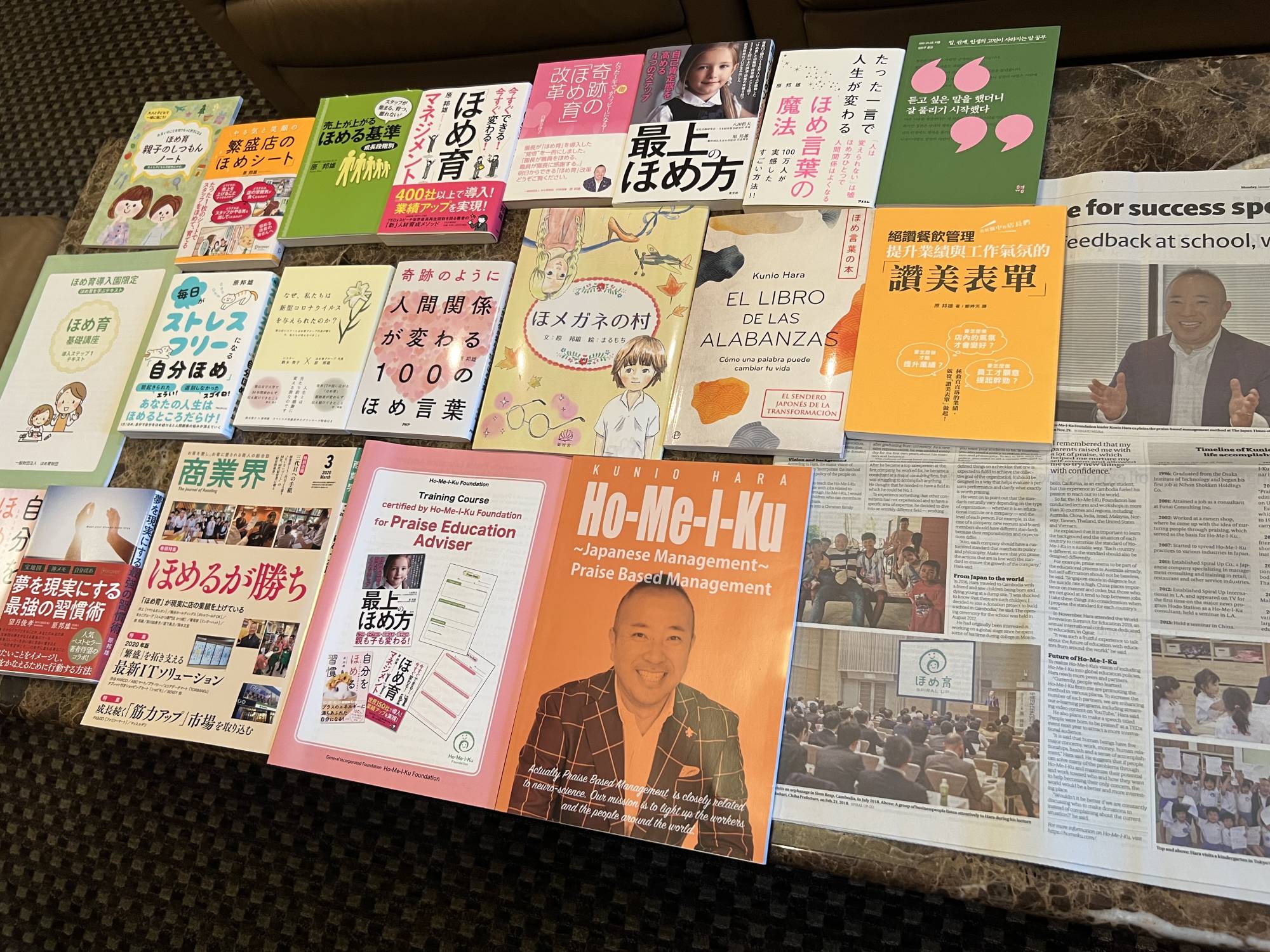
“One day, a person from the publisher in Spain asked me, ‘Why haven’t you used this method of praising each other for mediating conflicts and building connections among countries?’ I was struck by the idea. Indeed, why haven’t I?” Hara said.
To share his method with the global community, Hara started his own YouTube channel in English. He plans to spend a third of the year overseas holding lectures and workshops and attending occasional conferences, such as the annual World Innovation Summit for Education in Qatar in November.
“I want to see the Ho-Me-I-Ku principle brought to life in a Disney animated movie. I’d also like to have Ho-Me-I-Ku attractions at Disney Resorts around the world, where guests can be praised and told that everyone is perfect just by being born. Wouldn’t it be wonderful if, for example, everyone in the world watched a movie that starts with people praising each other? I would want to try it if there was an attraction in an amusement park where you could experience being praised by people around you,” Hara said.
As the first step toward realizing his dream, he began 2023 by promoting a movement to make praising one another an annual event for the entire world.
“If anyone knows how to realize my dream of making a Disney film, I would love to know so please contact me.”
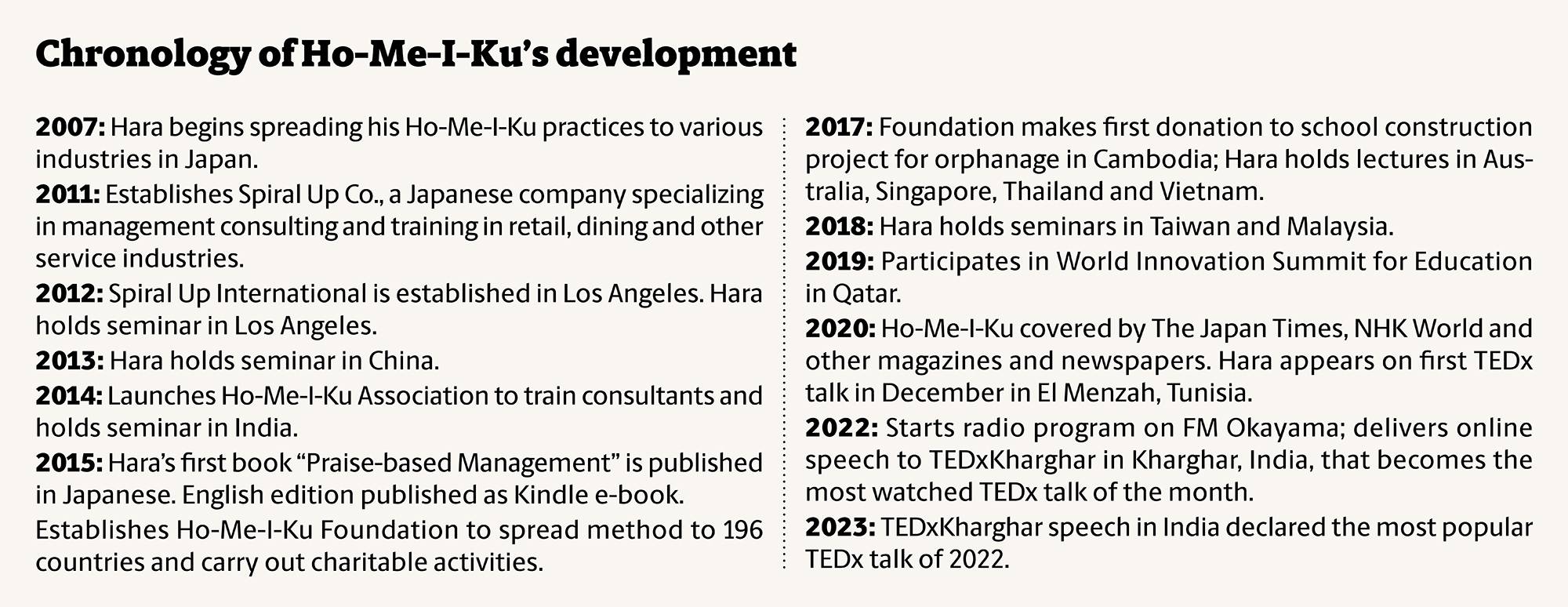
This page is sponsored by Spiral Up Co.
Download the PDF of this Praise and raise special



